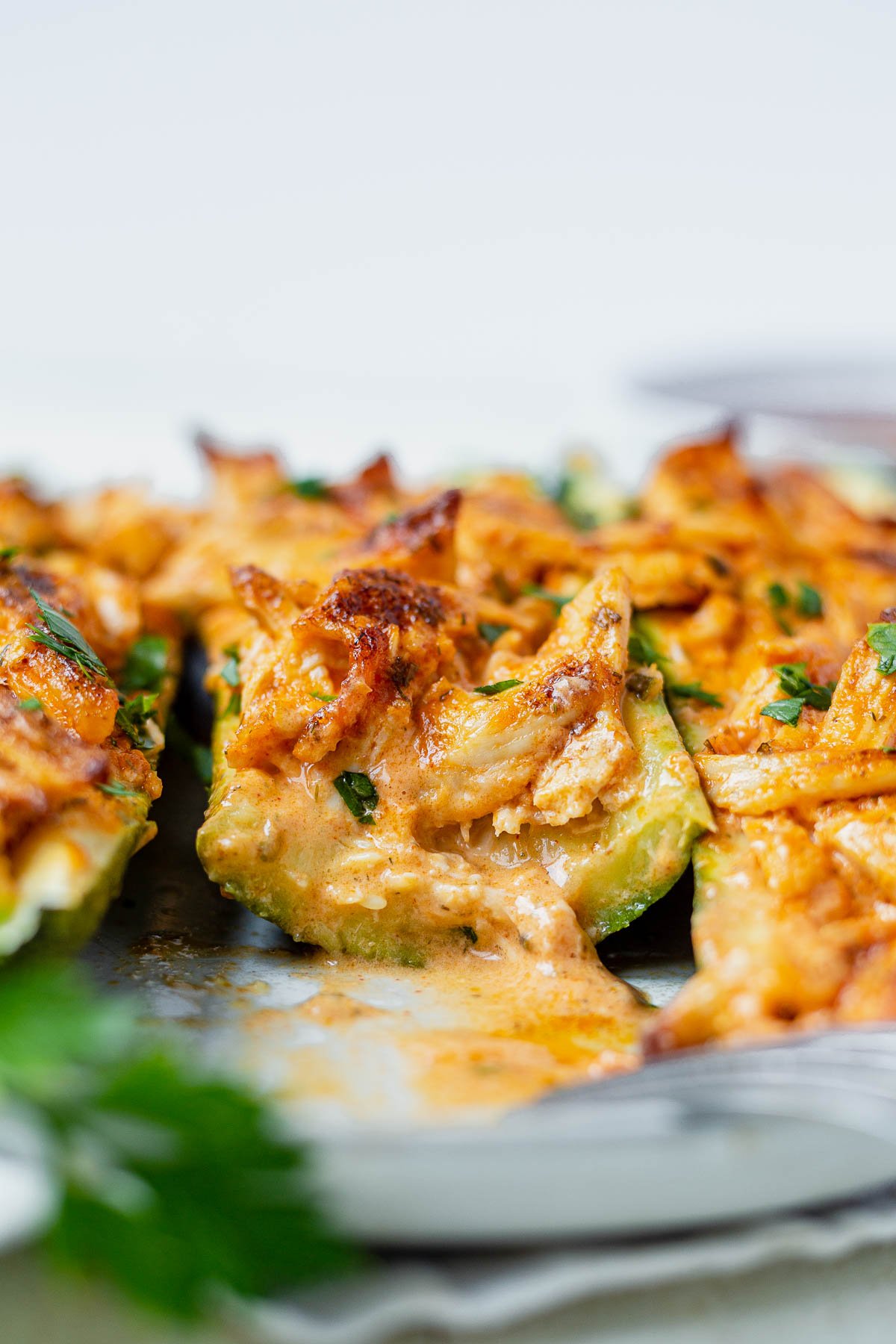You followed the recipe perfectly, but you still end up with tough, rubbery chicken. There are three reasons why your chicken may be rubbery. Have no fear, we’re sharing a few simple ways to prevent and fix rubbery chicken.
When you spend a lot of time, money, and effort on a recipe, the last thing you want is for the chicken to be tough. Chicken is one of the most common protein choices because of its versatility and nutritional value. It’s easy to throw in an Instant Pot Chicken Noodle Soup or shred it in Healthy Chicken Enchiladas.
Rubbery chicken is usually an indicator of overcooked chicken. The longer the chicken cooks, the more moisture it loses, and without moisture, the protein fibers become elastic, AKA rubbery.
Chewy chicken breast can be extremely frustrating. You carefully follow the recipe monitor the temperature and rest the chicken properly, but still end up with rubbery, tough meat. Luckily, with a few simple tweaks, you can transform your chicken breast from chewy to tender and juicy.
What Causes Chewy Chicken Breast?
There are a few common culprits behind chewy chicken breast
Overcooking
Chicken breast is very lean and prone to drying out Cooking it past the 165°F safe temperature leads to moisture loss and chewy texture The higher the temperature and longer the cooking time, the tougher the meat becomes.
Undercooking
It happens less often, but chicken that isn’t fully cooked can sometimes have a rubbery texture. For food safety, breast meat should reach 165°F internally.
Poor Quality Meat
Chickens bred for fast, large growth may develop a condition called “woody breast,” resulting in tougher meat texture. Buying air-chilled chicken from local sources can reduce this risk.
Cooking Method
Dry cooking methods like grilling, roasting, broiling, etc. can cause moisture loss and chewiness if not carefully monitored. Wet methods like braising are more foolproof.
Reheating
Repeatedly reheating cooked chicken breast dries it out further, worsening chewiness.
How to Fix Chewy Cooked Chicken Breast
If your chicken breast already has a chewy texture, there are several tricks to improve it:
Slice and Sauces
Cut the breast into thin slices or cubes. Mix in flavorful sauces like barbecue, teriyaki, etc. The smaller pieces and sauce provide moisture.
Soups, Stews, Casseroles
Shred the breast meat and add to soups, stews, casseroles, etc. The surrounding braising liquid softens the texture.
Cold Salads
Avoid re-heating chewy breast meat, which makes it tougher. Instead, dice it small and use in cold chicken salads. The mayonnaise-based dressing provides moisture.
Sandwiches
Pile chewy diced chicken between soft bread or rolls with veggies and condiments. The chicken’s flaws are disguised.
Simmer in Liquid
Simmering chewy chicken breast in broth for a while changes the texture without cooking it any more. Shred once tender.
How to Prevent Chewy Chicken Breast
While the fixes above can salvage a subpar chicken breast, it’s better to avoid chewiness in the first place. Here are some useful tips:
Don’t Overcook
Use a meat thermometer and stop cooking at 165°F for juicy, tender meat. Let it rest adequately; the temperature will continue rising slightly.
Brine Beforehand
Soaking in a saltwater brine hydrates the chicken and seasons it throughout. This retains moisture during cooking.
Tenderize Meat
Breaking down tough muscle fibers makes chicken more tender. Try pounding breasts, marinating in acidic ingredients, or enzymatic tenderizers.
Cook Gently With Liquid
Methods like poaching, braising, or pan-searing produce super moist, tender chicken breast. Aim for steady, gentle simmering.
Go Boneless and Skinless
The bones and skin insulate the meat, leading to uneven cooking. Boneless, skinless breasts cook through more gently.
Don’t Re-Heat Too Much
Only re-heat leftovers once, and use lower temperatures, moist heat methods. Microwaving makes chicken breast very tough.
Buy Air-Chilled
Air-chilled chicken retains more moisture than water-chilled. Locally raised chickens tend to have better texture and flavor.
Cook White And Dark Meat Separately
Chicken thighs and legs require higher temperatures than breast meat. Cook them separately for best results.
Rest Properly
Allowing the chicken to rest after cooking lets juices redistribute evenly for moist, tender meat. Tent with foil to keep warm.
Use a Meat Thermometer
It bears repeating – investing in an instant-read meat thermometer takes the guesswork out of perfectly cooked chicken.
With careful attention to temperature, preparation, and cooking method, you can avoid chewing your way through another tough, rubbery chicken breast. Next time you cook up this lean, protein-packed poultry, try the fixes above to get it just right. Dig in to moist, succulent chicken breast with a smooth, tender bite. Your taste buds will thank you!

Can you Eat Rubbery Chicken?
It’s generally safe to eat woody breasts, white-striped breasts and overcooked chicken, however, it won’t be as pleasant of an eating experience. On the other hand, it is not safe to eat undercooked or raw chicken.
Rubbery chicken due to undercooking can result in food poisoning and is a health risk in addition to the unappetizing texture issue. Use a meat thermometer inserted in the thickest part of the chicken to ensure it’s cooked to a safe 165°F to avoid a health hazard.
How do You Fix Rubbery Chicken?
Protein, fat, and liquid are the three elements that make up chicken. As previously mentioned, the chicken loses moisture (and fat) as the cooking time increases, resulting in a rubbery texture.
You can’t go back and re-make the chicken, but the good news is there are ways to fix it. You’ll need to add more liquid and fat back to help the chicken become more tender and enjoyable.

Stop Overcooking Chicken Breast!
FAQ
How to fix rubbery chicken breast?
To fix rubbery chicken breast, the key is to add moisture and tenderize the meat. For example, you can brine the chicken, cook it slowly, or add it to dishes with sauces or stews to do this.
How do you make chicken breast less chewy?
The absolute best way to make chicken breast is to slice them horizontally into thin fillets — then cook however you want. Cutting them sideways slices through the muscle fibers and avoids that chewy dry yuckiness. That said, I use thighs for most recipes.
How to soften up chewy chicken?
These strategies involve cooking with either liquid or steam, which can soften tough fibers in the chicken. If you want to fire up the grill or oven, you can still cook up a tender piece of meat. Just make a brine or marinade and let your chicken sit in there for 20 to 30 minutes before cooking.
Why is my chicken breast really chewy?
HOT TAKE: Chewy chicken is caused by over cooking, generally in high dry heat, the simplest answer is don’t be so aggressive with your heat.
